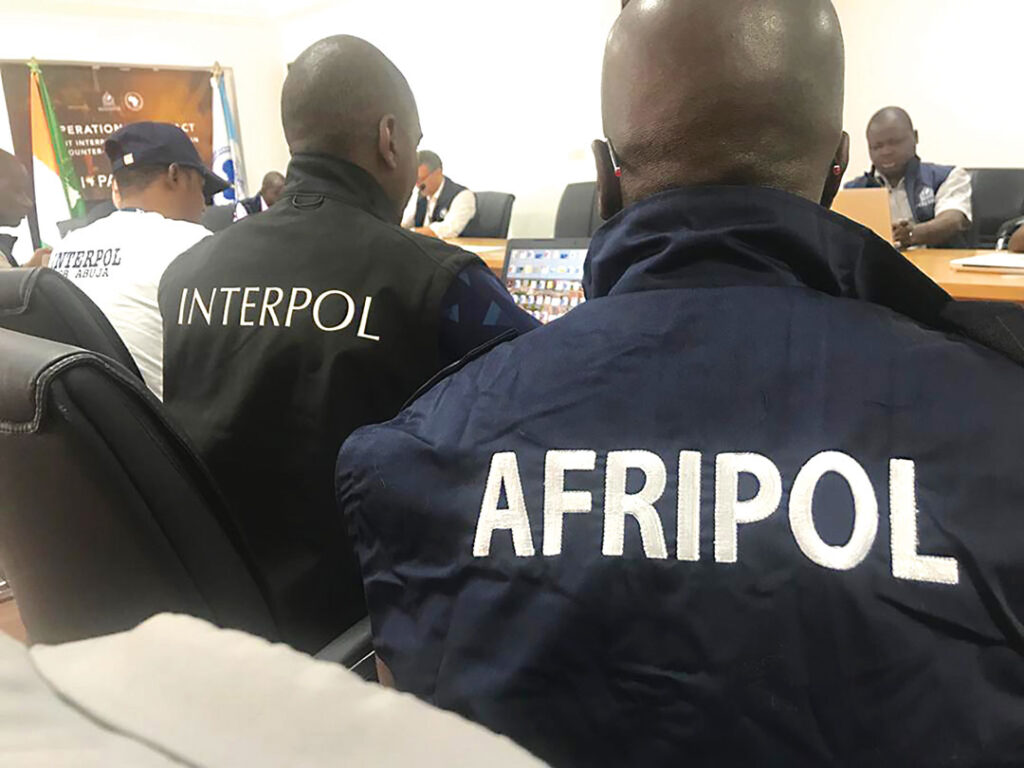ADF STAFF
A four-month joint operation by Interpol and Afripol involving 25 countries helped stop cybercrime schemes that steal from vulnerable people and hurt national economies. Africa Cyber Surge II began in April 2023. By August, authorities had arrested 14 people on charges of running online scams based in countries including Cameroon, Mauritius and Nigeria.
The operation came after the first Africa Cyber Surge in 2022. Both were a reminder that the rapid spread of the internet and smartphone technology across Africa has happened, in many cases, without the necessary protections to guard against online scammers and other malicious actors, according to experts.
Organizers involved with Africa Cyber Surge II said countries need to partner across borders to protect their citizens.
“Coordinated operations such as Cyber Surge are necessary to disrupt criminal networks and build individual, organizational and society-wide levels of protection,” Afripol’s acting Executive Director Jalel Chelba said in a statement.
Among the most common attacks is phishing, a cyberattack that tricks people into opening emails and text messages that unleash malicious code into their computer systems and smartphones. Another tactic is the use of ransomware, in which hackers inject code that locks down a computer system until the owner pays to have it restored.
Africa Cyber Surge II invoked the kind of cross-border cooperation cybersecurity experts see as needed. Among those arrested were three people in Cameroon involved in the fraudulent sale of artworks worth $850,000. They were captured with the cooperation of authorities in Côte d’Ivoire.
In addition to those arrests, the program also:
Took down 185 internet addresses connected to malicious activities in The Gambia.
Led Cameroonian authorities to shut down two darknet sites.
Led Kenyan authorities to shut down 615 websites that hosted malware — software typically tied to online scams such as phishing and ransomware.
“The Africa Cyber Surge II operation has led to the strengthening of cybercrime departments in member countries as well as the solidification of partnerships with crucial stakeholders, such as computer emergency response teams and Internet Service Providers,” Interpol Secretary-General Jürgen Stock said in a statement announcing the results of the investigation.

